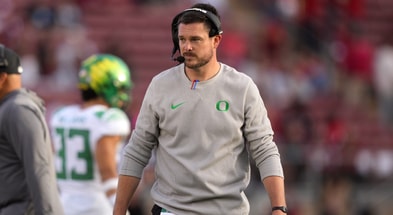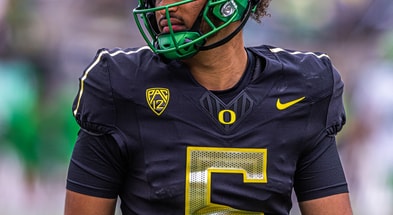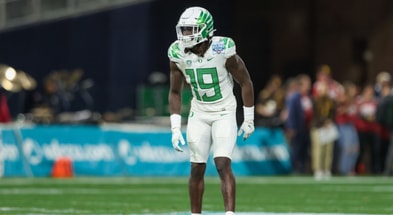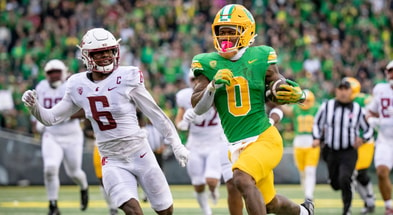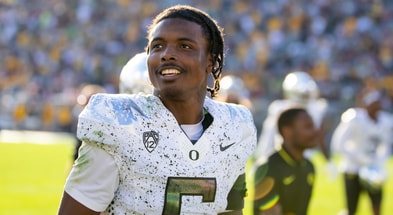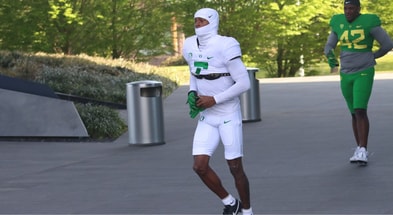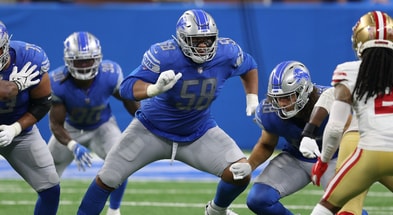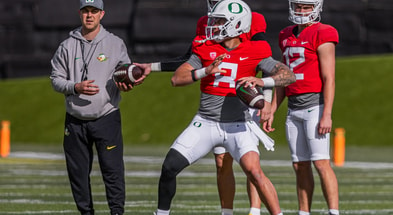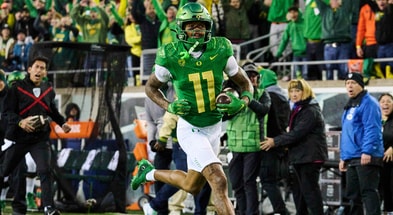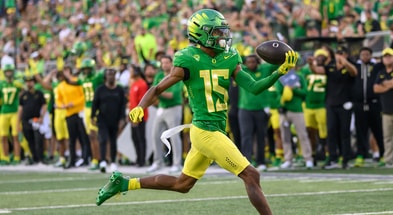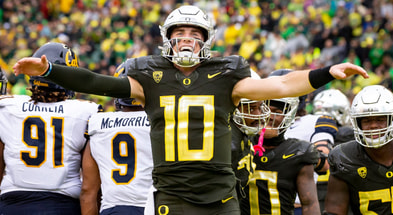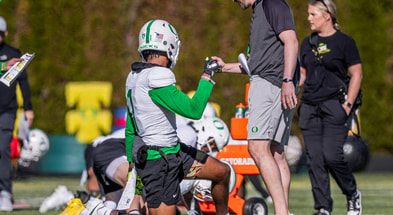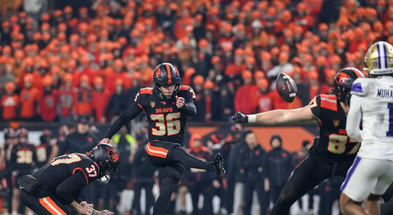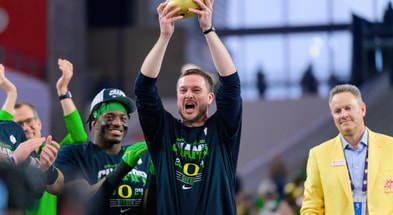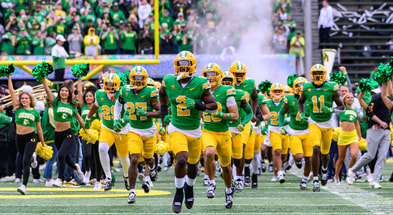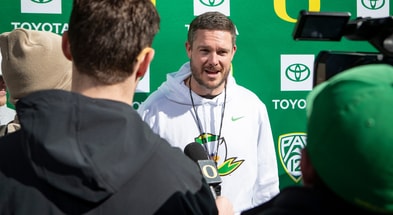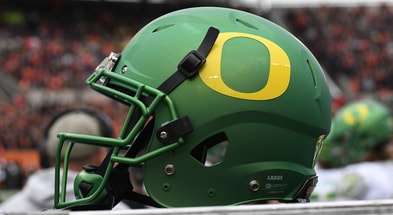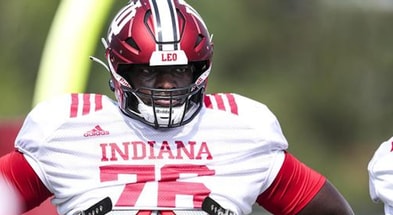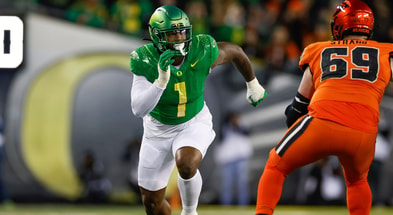How will Oregon deal with Georgia's loaded group of tight ends?
There aren’t many teams that found a way to slow down Georgia’s superstar tight end, Brock Bowers, last season.
A 6-foot-4, 230-pound former 5-star signee for the Bulldogs, Bowers hauled in 56 catches for 882 yards and 13 touchdowns as a true freshman last season. He was a first-team All-American and eclipsed the 100-yard mark in four different games.
As if Bowers weren’t enough for opposing defenses to worry about, the depth behind him is equally impressive. Arik Gilbert and Darnell Washington — the No. 1 and No. 2 tight ends in the class of 2020 — are also competing for snaps with Bowers.
Seth Emerson, who covers Georgia for The Athletic Tweeted out a handwritten projection of Georgia’s depth chart on Tuesday and aptly summarized the talent that its tight end room features.
On Saturday, Oregon coach Dan Lanning and his staff will be tasked with containing Bowers, Gilbert, and Washington.
“I think it’s arguably one of the best groups in the nation,” Lanning said on Monday. “It’s hard to find a group that has as much talent in their tight end room. Obviously, we really love our tight ends here, but they’ve got a great group. A lot of talent.
“You could call them tight ends but the reality is, they’re a matchup issue at wideout as much as they are at tight end.”
As Lanning noted, there isn’t one tried and true way to limit Georgia’s tight ends. Throughout the 2021 season, Bowers consistently pushed teams regardless of how they matched up with him.
“They do a great job and mix it up,” Lanning said. “(Todd Monken) obviously is an elite play caller and does a great job of recognizing what you’re in and creating open sets when you’re big, and in creating condensed small sets when you’re small. So it’ll be fun to see him.”
A handful of teams found ways to limit Bowers last season, at least from a statistical standpoint. Florida held him to 38 yards on one catch, and he tallied just 23 yards on two catches against Tennesee.
But, as Lanning points out, slowing down Bowers did not ultimately equate to team success.
“I don’t think we can make him our lone focus; the teams that had success still lost those games,” Lanning said. “So I’m not going to necessarily follow their plan.”
Oregon features a uniquely talented mix of players who could allow the Ducks to throw a few different looks at the Georgia tight ends on Saturday. In addition to a pair of ultra-athletic linebackers in Noah Sewell and Justin Flowe, the Ducks also have Jeffrey Bassa, a converted safety who is going to make an impact at linebacker this season.
If the Ducks opt to throw an extra defensive back at the Georgia tight ends, there are versatile options there, too.
Bennett Williams and Jamal Hill are both veteran players who will get snaps at nickel, with Williams also likely playing boundary safety. Williams is more of a traditional defensive back, while Hill is a bigger, more physical player.
As Lanning noted last week, “Both of them are really good yin and yang to each other.”
“(Bowers) is definitely a special player,” Williams said. “Size, speed, hands, can block. He’s definitely a good player. But I feel like we’ve got really good players. I feel like we have the guys and the scheme that can — I don’t want to say negate it or shut it down — but at least limit it and work into our game plan to try to limit them.”
Williams was asked if bracket coverage on Bowers could be an option, and said Oregon can’t afford to gear its whole gameplan toward stopping the tight ends.
“They’ve got a ton of threats,” Williams said. “We’ve put in some different defenses and stuff to give them different looks and potentially slow their playmakers down. But we’re gonna play our game.”
